Excerpt 1
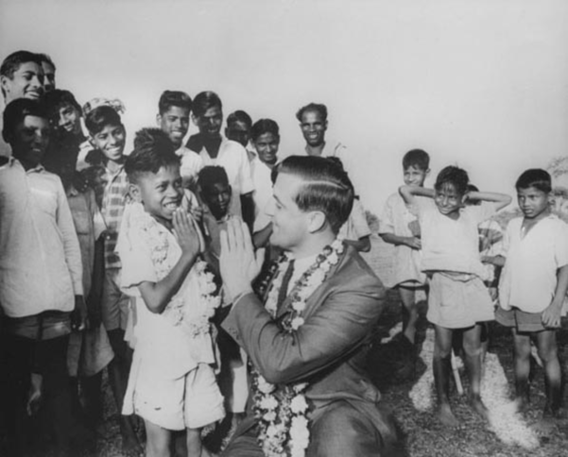
"I have just returned from India, where I went to study the effectiveness of our food assistance effort. Wherever I traveled, in New Delhi and in rural farm areas, I learned that it was impossible to exaggerate the magnitude of India's food problem, or the importance of our wheat shipments. And in the year which has just begun, because of the disastrous drought and famine, India will need from us and other food–surplus countries up to 14 million tons of grain or more — more than twice the regular annual amount under Public Law 480— if millions of her people are not to starve.
But feeding hungry peoples is not enough. If we just keep people alive, without giving them the tools to provide for themselves, their dependence on us can grow from a temporary misfortune to a permanent habit....
America can never hope to feed the world, and recognition of this fact is the beginning of wisdom in our food–for–peace program. But neither can we refuse to do what we can. We must squarely meet the threat of human hunger and malnutrition, and use our unmatched farm potential to help hungry peoples feed themselves and, ultimately more important, help them to help themselves." 89th Cong., 2nd sess., Congressional Record 112 (January 26, 1966) at 1187.
Excerpt 2
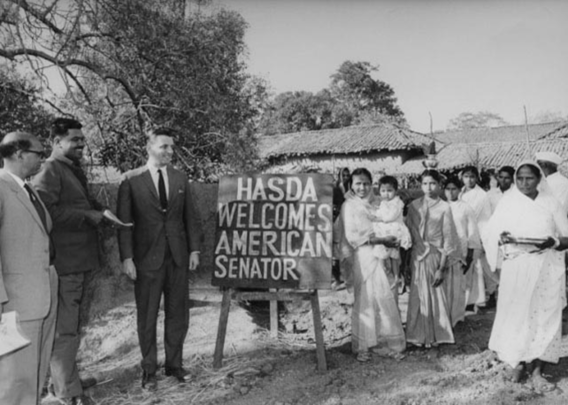
"If we agree that ultimate peace in our troubled world depends on steady progress and development in these countries, the brain drain in its present magnitude is a threat to world peace.
We must be willing to find effective ways of seeing that human talents are used in the places where they are needed. We must find ways to keep our short-range advantage from becoming a long–range disadvantage. We must not retard the development of countries which we are trying to assist to join the international community on the basis of equal participation....
I would hope that as one of the most highly developed nations in the world, we would see intellectual migration from other countries as an opportunity to help these countries develop and not an opportunity to make up for our own irresponsibility in providing for our needs." U.S. Congress. Senate. Committee on the Judiciary. International Migration of Talent and Skills: Hearings Before the Subcommittee on Immigration and Naturalization. 90th Cong. 1st sess., March 6 and 10, 1967 at 89-90.
Excerpt 3
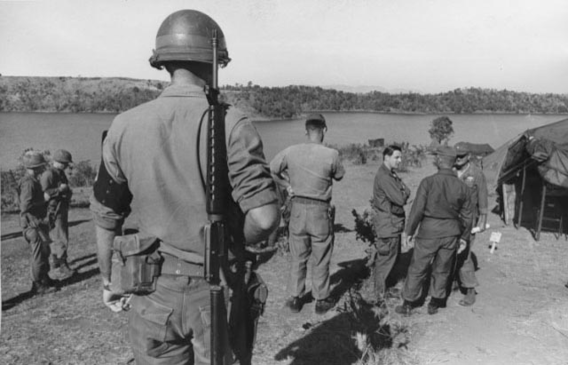
"Despite my deep frustration over Vietnam, my despair over the destruction of war, my concern for the dying—all the dying, I feel deeply that in all of its tragedy, our present course is the best that we have to pursue. And I cannot bring myself to magnify my reservations to the point where they would be seen—incorrectly, but probably enthusiastically—as a fundamental objection to our policy in Vietnam....
There is a larger objective. It could be shattered and paralyzed if we let our differences destroy the effectiveness of our party, if our great movement toward human improvement is further divided, split and shattered." Remarks at the Young Democratic–Farmer–Labor Issues Conference on Vietnam, Macalester College, St. Paul, MN, November 11, 1967. 90th Cong., 1st sess., Congressional Record 113 (November 22, 1967) at 33671 and 33673.
Excerpt 4
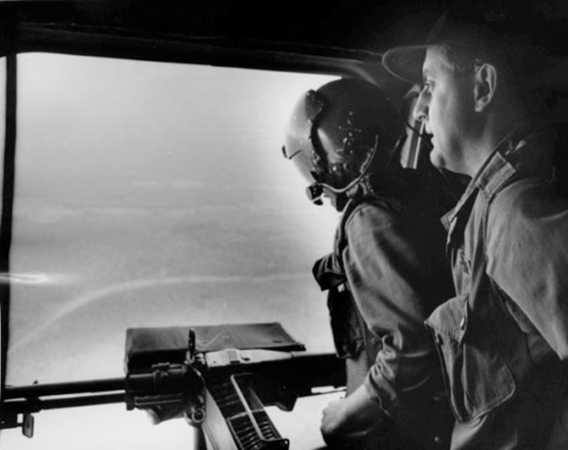
"I once supported this war. I thought it was right. I thought many things would happen in Vietnam; a popular non–corrupt government, land reform, a South Vietnamese Army that would fight, and many other things. I found out I was wrong; I admit it; and I think it is time for the U.S. Government to do the same." 91st Cong., 1st sess., Congressional Record 115 (November 21, 1969) at 35363.
"The Hatfield–McGovern amendment represents... a reassertion of congressional authority in the fateful choices of war and peace—a reassertion so plainly required by the Constitution and so long overdue.... My colleagues and I rise today to stop at last the killing and maiming of Americans in Vietnam." 91st Cong., 2nd sess., Congressional Record 116 (August 28, 1970) at 30381.
Excerpt 5
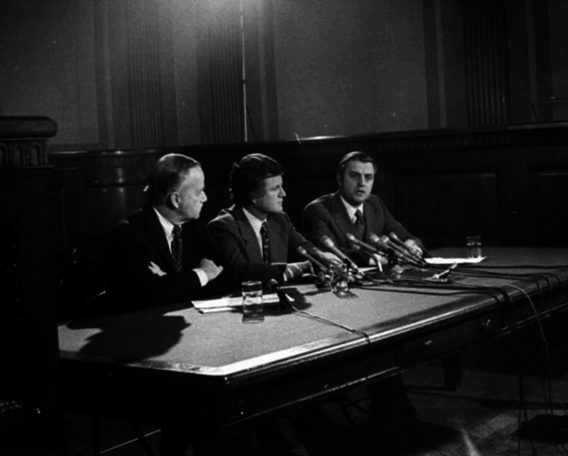
"The Vladivostok agreement will do little to alleviate the arms race and, in fact, there is a grave danger that the agreement may stimulate it." 93rd Cong., 2nd sess., Congressional Record 120 (December 9, 1974) at 38487.